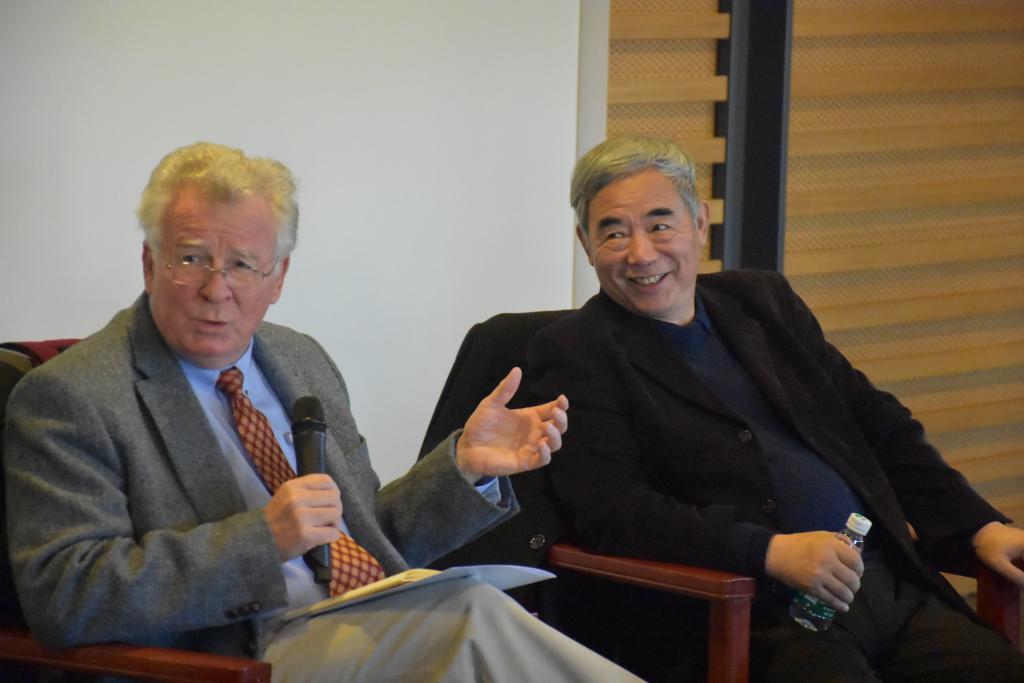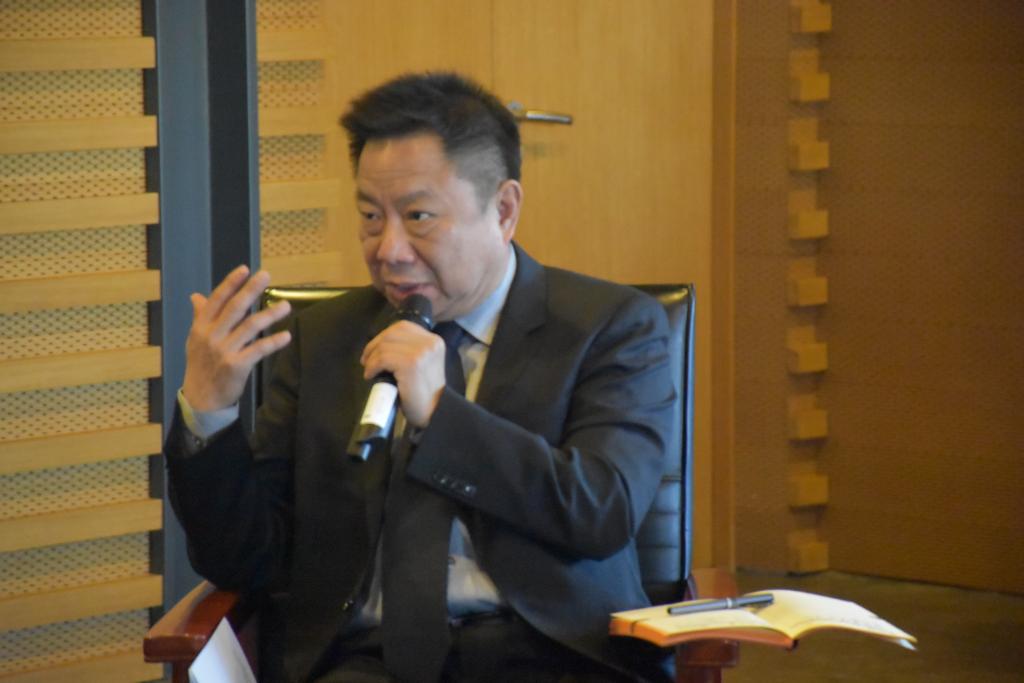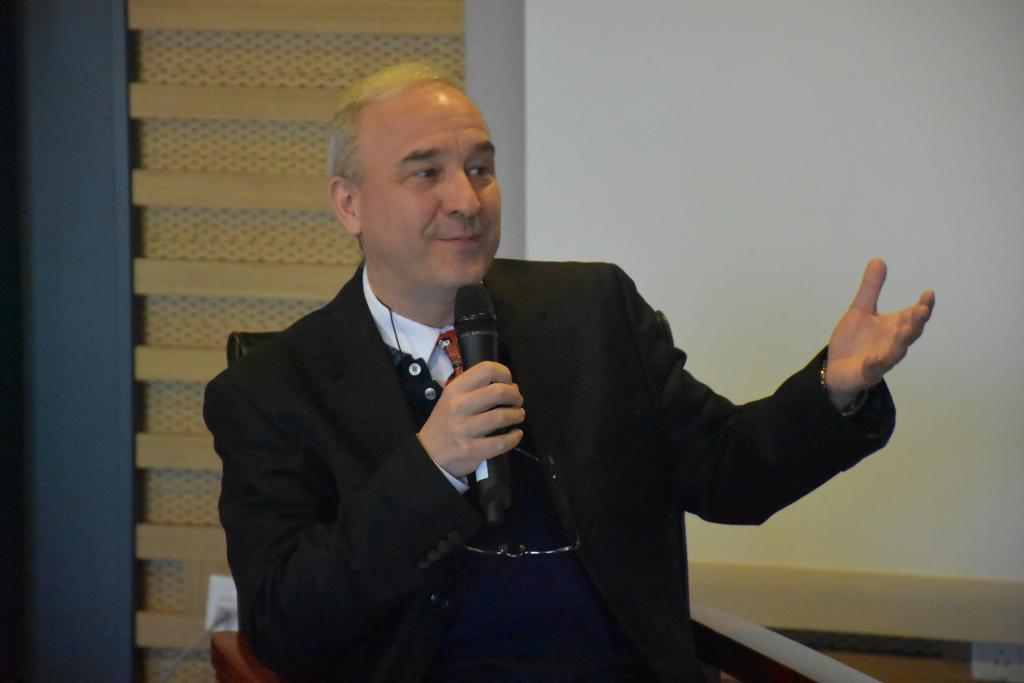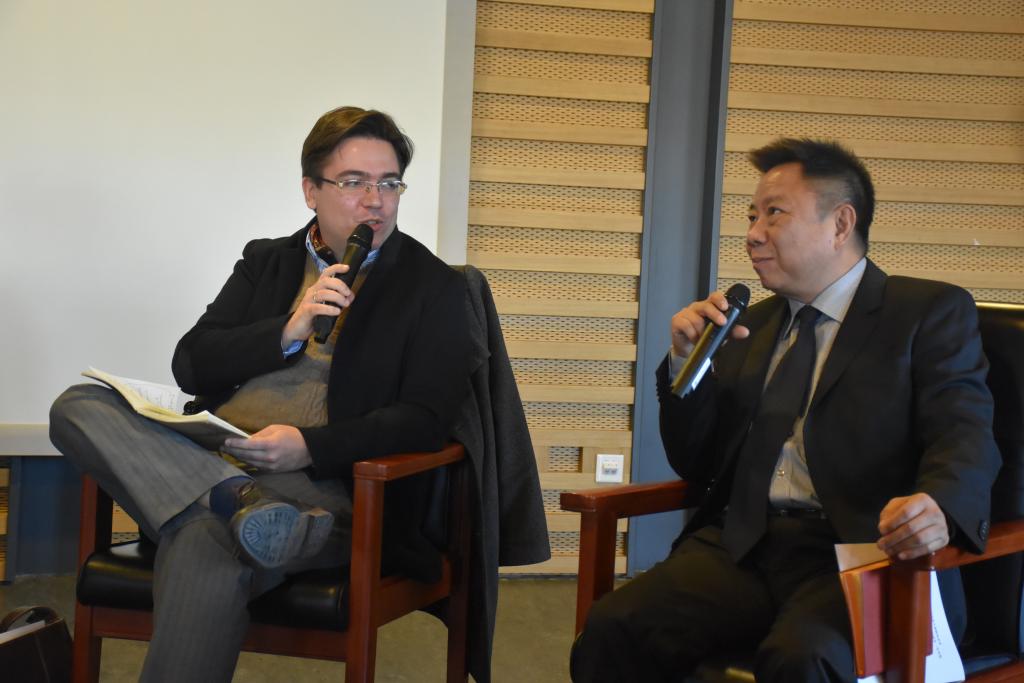Academic dialogue: A question of connections
(from China Daily, Fang Aiqing reports)
A group of scholars recently discussed the cultural exchanges that have taken place in Beijing over the past 40 years’ reform and opening up. The scholars of social sciences and the humanities were participating in the academic dialogue Retrospect, Connection and Innovation, held at the Beijing Foreign Studies University. The sponsor is Beijing Cultural Exchange Research Center.

Beijing replaced Xi’an, once the capital of imperial China in Shaanxi province, to be the cultural center of China during the Yuan dynasty (1271-1368), according to Ouyang Zhesheng, a history professor at Peking University. And since then Beijing has become an international metropolis, Ouyang says.
“Over the past 40 years, we have been driven by a need to introduce the essence of Western culture, hoping to go global,” Ouyang says. “But now China and the West have moved to a new stage marked by dialogues and run-ins.”

American sinologist Roger T. Ames, an expert on Chinese philosophy, sees changes in Chinese culture now that China has gone through changes in its politics and its economy.
In Ames’ view, the core of Chinese philosophy lies in humanity and a growing number of the younger generation in China are seeking their future in traditional cultural connotations.
“Confucianism cannot resolve all the challenges we are facing. However, it should have its place and voice,” says Ames, who will be giving lectures on Taoism at the Free University of Berlin for a month from mid January.
Ames sees value in the mutually beneficial thinking rooted in traditional Chinese culture, which in the words of his former graduate student, Tian Chenshan, currently the director of the center for East West relations at BFSU, is undervalued in individualistic ideology.

Chinese culture takes human relations, rather than “self”, as the priority, saysTian.
“We should keep our own culture in mind in the first place, and then cultivate cultural composure and be critical in order to better learn from other cultures,” Tian says.
Applying Ames’ comparative philosophy method, he thinks that people should look at the cultural roots of each other when trying to understand another culture as well as frequent frictions.

Yang Xusheng, the director of the Center for World Religious and Global Ethics at Peking University, says Emperor Kangxi (1662-1722) was an iconic figure in the eyes of the French enlightenment thinkers during the 18th century, though there was a cultural misreading.
Yang, in the 1990s, studied with Hans Kung, or Kong Hansi in Chinese, a Swiss philosopher and theologian, who is focused on diverse religious traditions and seeking a consent that can be considered as a basic value for human beings today and in the future.
According to Yang, Kung found the appropriate expression of the value in Confucianism.
And Yang says spiritual and cultural exchanges are essential in the future and require open dialogue and mutual learning.

Michele Ferrero, an Italian Latinist at BFSU, not only teaches Latin, but also takes his students to some churches in Beijing to help them gain a more comprehensive picture of Latin culture.
Every summer, he also takes students to visit Rome.
Though not many people learn and use Latin these days, a number of Chinese students realize it is the key to Western history, science, philosophy and religious studies.
“The Chinese value history,” says Ferrero.
However, he recognizes the cultural differences between Italy and China and stresses it’s difficult to define an “Italian culture”. So, be careful, but relax and be tolerant, says Ferrero.

David Bartosch, German philosopher and a professor at the School of International Relations and Diplomacy at BFSU, has for years been observing politics and diplomacy, especially China’s relationship with Europe, using a philosophical perspective.
He sees the Belt and Road Initiative as an inevitable result of the development of Eurasian civilizations and says that in turn Beijing should and will be more international with the progress of BRI.
Bartosch calls for detailed and deeper thinking of further policies of reform and opening-up. And he says he hopes that German thinkers will participate.

Zhang Xiping, the director of the BFSU Academy of Comparative Civilizations and Intercultural Communication, says the presence of sinologists like Ames shows that Chinese culture is global and that more academic discussions are needed to promote research on it.
Since 2008, Zhang has devoted himself to studying and publishing documents on East West cultural exchanges in the Ming (1368-1644) and Qing (1644-1911) dynasties that are housed at the Vatican Library and were mainly written by missionaries of the time.
Zhang says he recently got to know that there is a large number of documents on China in Lyon, France, and wants more support to collect and study them.